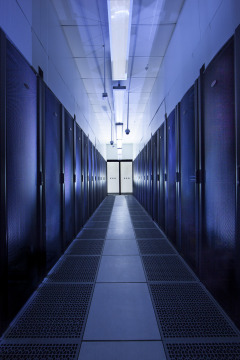 Gen. Michael Hayden’s lengthy encounter with the Australian Financial Review last week was unusual in itself.
Gen. Michael Hayden’s lengthy encounter with the Australian Financial Review last week was unusual in itself.
Despite the appetite for spook-related stories these days, the most widely-reported part of the interview is the claim by the ex-CIA and NSA chief about Huawei's role in Chinese espionage.
What's telling is not the assertion, or the inevitable lack of accompanying hard fact; it's that the assertion itself is adequate.
Hayden tells the interviewer that Huawei “would have” shared its knowledge of foreign telecom systems with Chinese authorities. Asked if evidence exists that Huawei has engaged in espionage on behalf of China, he replies (emphasis added):
Yes, I have no reason to question the belief that’s the case. That’s my professional judgement. But as the former director of the NSA, I cannot comment on specific instances of espionage or any operational matters.
Thus Huawei’s role as a security threat is reduced to a mere “belief”. Even within 'operational' constraints, if you have a case against someone, you will find a way to express it. And you would certainly put it with more conviction than the phrase above.
But Hayden does us an unintentional favour here by making it clear that Huawei is proscribed not because of what it's done but what it has the potential to do.
Hayden reveals that after retiring from the CIA he even received a pitch from Huawei in its search for Beltway advocates. According to Hayden, Huawei said all the right things:
But God did not make enough briefing slides on Huawei to convince me that having them involved in our critical communications infrastructure was going to be okay. This is not blind prejudice on my part. This was my considered view based on a four-decade career as an intelligence officer.
He adds:
But frankly, given the overarching national security risks a foreign company helping build your national telecommunications networks creates, the burden of proof is not on us. It is on Huawei.
Leaving aside the ontological challenge of demonstrating that one is not a spy, this is the logic of the national security mindset. It takes a brave politician to challenge it and through the Cold War, the 'war on terror' and now the contest with China, it’s been the prevalent one in Washington.
The rest of world, including the telecom industry, has to live with it. Telstra and PCCW are surely not the only operators to have signed pledges allowing the FBI access to their cables or to store data for its convenience.
But as this blog has suggested before, this logic makes suspects of all vendors.
In this part of the world, that puts the spotlight on Cisco. According to Ni Guangnan, a professor at the Chinese Academy of Engineers, Cisco provides 70%-80% of the backbone routers, international gateway nodes and super-nodes in the two biggest backbone networks, China Telecom and China Unicom.
In a widely-reported incident last October, Unicom swapped out Cisco routers for Huawei kit in what is said to be the world’s largest cluster node. Because of Cisco’s large installed base and the thousands of Cisco-qualified engineers, we won't see a rush to dump Cisco gear.
The Snowden saga has given China the ability to laugh off US complaints about its online data theft. Now the US national security case, as put by Hayden, is a script that China will faithfully adapt for its own purposes.
So stand by for the continued blocking of foreign telcos, more technology protectionism and the dextrous application of 'national security' to ensure China's networks are increasingly the preserve of the home team.